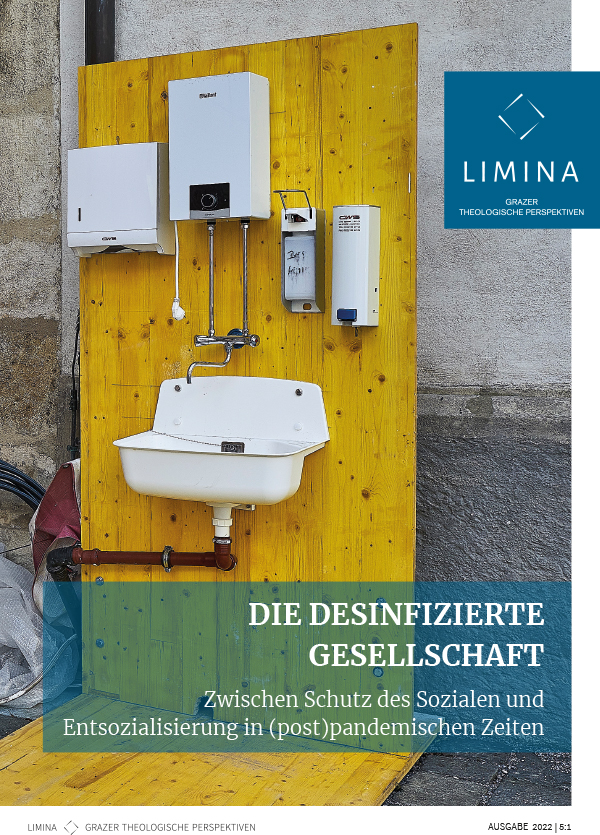The dialectic of care between norm and exception Ethical reflections on “Care & Covid” at the hospice Veronika Eningen
Main Article Content
Abstract
The experiences of the Covid 19 pandemic have highlighted three social and structural issues that impact the provision of care. 1) The collective confrontation with vulnerability and mortality – temporarily – pushed questions surrounding care into the political spotlight and public awareness. 2) The challenges and inequalities plaguing access to care and the working conditions in care professions were laid bare. 3) Care and its provision sit at the – intensely pressurised – ethical-existential intersections between welfare and self-determination, the common good and the individual good, safety and freedom. These questions hold particular relevance for hospice patients, carers and institutions.
The tribulations of providing adequate and dignified hospice care within the highly limited framework of Covid restrictions hold great learning potential for addressing existential uncertainties and structural issues affecting care on a societal level. This realisation gave the impetus for asking carers and care-givers to document and share their experiences for further discussion in local ethics workshops. The central question is: What can we learn from these existential experiences and ethical challenges posed by the pandemic for the future of a caring society?
Drawing on Paul Ricoeur’s thoughts on love, care and justice, this article will summarise key insights into the dialectic between norms and exceptions. Three selected requirements for an ethics of care suitable for navigating these ambivalences will be discussed in further detail: a) establishing a reflective environment, b) building on the pillars of hospice culture, c) taking a holistic approach to health and enshrining this in practice and policies.
Article Details
The author(s) retain copyright without any restriction.
LIMINA provides immediately upon publication open access to its content. The content of this journal is licensed under the Creative Commons Attribution 4.0 International Licence. By submitting a contribution, the author(s) agree(s) to the terms of use of the CC BY licence.

